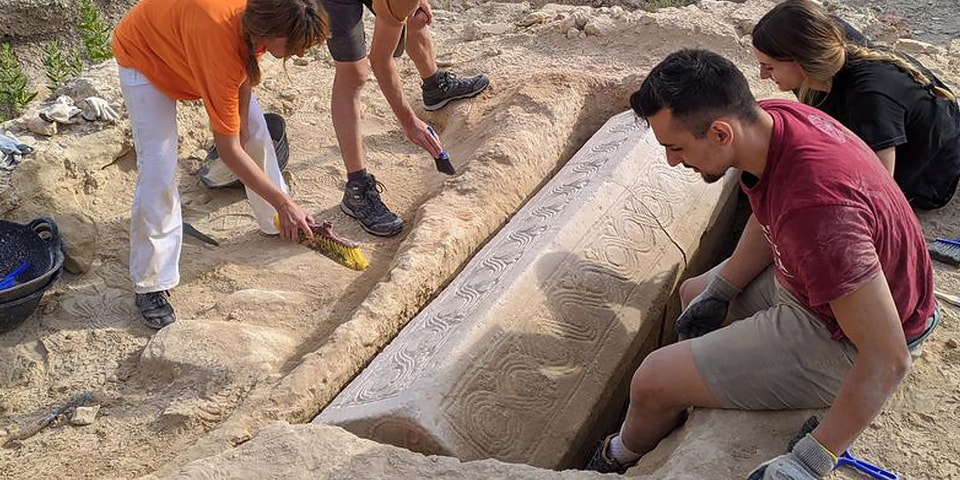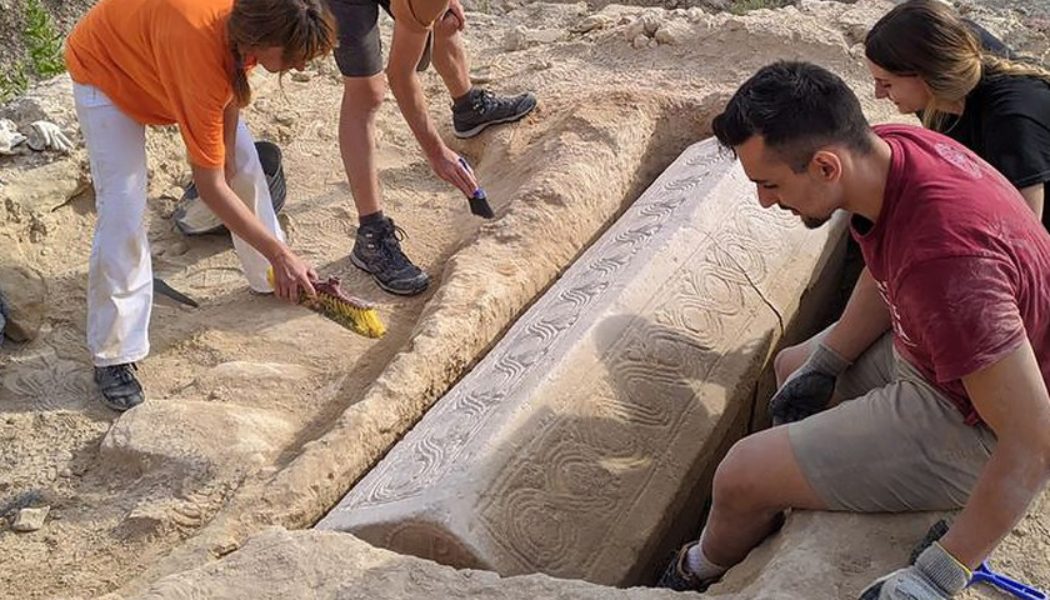
Archaeologists in Southeastern Spain were uncovering what they thought was an architectural structure, instead to find a fully preserved Visigoth sarcophagus. The excavation took place in a town called Los Villaricos and was led by a team of researchers, such as The University of Murcia (UMU) professor Rafael González Fernández over a two week period.
Fernández estimates the sarcophagus, which stands at 6.5-feet and contained human remains within, dates back to the 6th or 7th Century. The artifact is pristinely well-preserved, showcasing a range of intricate features, such as spiral details, ivy leaves and the Chi Rho, one of the earliest Christogram symbols indicating the resurrection of Jesus Christ.
The Goths were a Germanic Tribe that successfully invaded the Roman Empire in the 1st Century C.E. They disbanded between the Ostrogoths and the Visigoths — the latter of which came to rule Spain and Gaul until being sacked by the Moors in 711. During the Roman Empire, Los Villaricos was a residential area in which the production of wine, olive oil and other services were made. Upon claiming the land, the Visigoths converted the area into a burial ground.
The news is the latest of a string of archaeological finds, such as the ancient Roman road that was recently found at the bottom of the Venice Lagoon.









